Keywords: Migrant Workers
-

AUSTRALIA
- Fatima Measham
- 16 February 2017
9 Comments
There's not enough jobs because foreigners are stealing them. Wages aren't going up because foreigners drag them down. Graduates aren't finding positions because skilled worker visas are being given out too easily. Such answers are potent in pockets of Australian society that would rather blame outsiders than demand their government create new jobs, lift the minimum wage, improve work conditions and training, and mediate skills transfers from industries that are contracting, such as mining.
READ MORE 
-

INTERNATIONAL
- Julie Davies
- 24 January 2017
11 Comments
I can understand the Trump phenomenon. Hard-working Americans and many Australians are blaming various minorities as responsible for their decline. They are being blinded to the real culprits: our own governments and their wealthy backers. Juvenal's 'bread and circuses', designed to keep the people docile and distracted in Ancient Rome, have been updated to Maccas and manufactured news. And hatred. Are we so easily manipulated? Is the American model the future Australia wants for itself?
READ MORE 
-
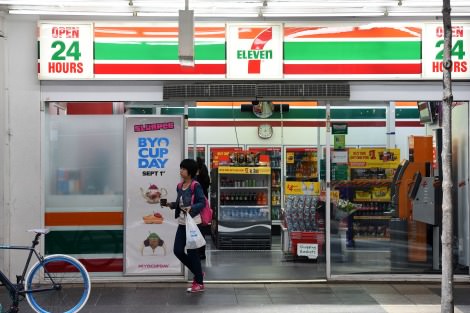
AUSTRALIA
- Evan Smith
- 27 October 2016
19 Comments
While the White Australia Policy attempted to prevent non-white workers from living and working in Australia, people from across the globe continued to do both, although often at the margins of white Australian society. The Australian Labor Party and the trade unions were complicit in maintaining this racial divide. In Australia today, a new wave of migrants is working in convenience stores, driving taxis or cleaning buildings. They are part of the Australian working class, but are often not considered such.
READ MORE
-
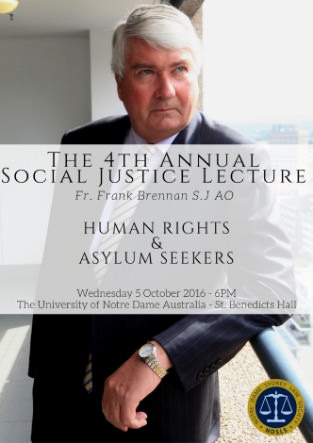
AUSTRALIA
- Frank Brennan
- 06 October 2016
8 Comments
Australia's policy is unique and unrepeatable by other nations because it requires that you be an island nation continent without asylum seekers in direct flight from the countries next door and that you have access to a couple of other neighbouring island nations which are so indigent that they will receive cash payments in exchange for warehousing asylum seekers and proven refugees, perhaps indefinitely. The policy over which Turnbull presides is not world best practice. It's a disgrace.
READ MORE
-
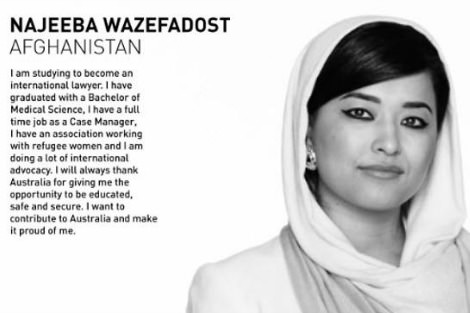
AUSTRALIA
- Somayra Ismailjee
- 20 May 2016
33 Comments
The irony of trying to negate these stereotypes is that in doing so, we are still cheapening asylum seekers to political tools, stripping them of their humanity and multiplicity. Aiming to counter such rhetoric as Dutton's with stories of high-achieving refugees plays into a toxic game that legitimises the same negative stereotypes by engaging with them. Just as invisibility dehumanises asylum seekers, so does the hypervisibility we attribute to a select few stories.
READ MORE 
-
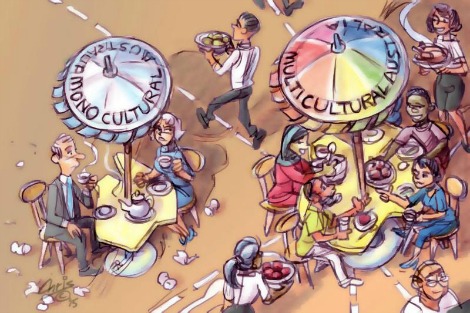
AUSTRALIA
- Gabriela D'Souza
- 09 November 2015
10 Comments
George Megalogenis describes a protest rally in 1849 organised by residents of Sydney against arrivals of more convict boats. Workers who 'wanted to maintain their high-wage society' made 'the first of countless calls that would be made against migrants who threatened to undercut their standard of living'. It is a familiar refrain today. In a world where three-fifths of a person's income is determined by their place of birth, it defies logic that we place restrictions on people's movement to preserve our standard living.
READ MORE 
-

ARTS AND CULTURE
- Tim Kroenert
- 17 September 2015
5 Comments
When Sin-Dee rants about the 'fish' with whom her pimp boyfriend has been cheating, she is a transgender woman using a derogatory term for a person who is socially and biologically female. Her story does not merely transgress traditional gender binaries; it assumes the perspective of marginalised characters to reveal through their lived experiences the ways in which gender is both an individual and social construction.
READ MORE 
-
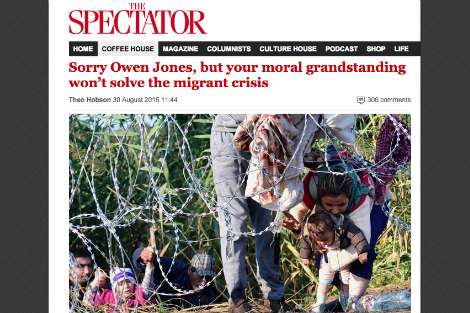
AUSTRALIA
- Tim Robertson
- 09 September 2015
3 Comments
Writing in The Australian this week, Chris Kenny declares: 'Emotion, moral vanity, political posturing and good intentions won't be much of a guide when it comes to making the right decisions and delivering the best results'. He and like minded opinion writers get so much traction because they're essentially correct. Compassion alone is not enough.
READ MORE 
-

ARTS AND CULTURE
- Tim Kroenert
- 05 March 2015
Abel's life is pointedly contrasted with Peter's, a young truck driver who has been the victim of several violent assaults on the job. Peter idolises Abel, for whom the Dream has apparently come true — if Abel can make it, so too can Peter. The problem is that Abel's Dream stands on the backs of ordinary workers like Peter. Peter is a tragic antihero coming to learn that for many, the Dream will remain just that.
READ MORE 
-

INTERNATIONAL
- Denise Coghlan
- 24 June 2014
5 Comments
In 2009 Cambodia enacted its own laws concerning refugees. If asylum seekers are found to be refugees they are given a prakas that allows them to stay legally in Cambodia but which is not accepted as a proof of identity by most employers, businesses and banks. The sense of insecurity of those seeking asylum is heightened by the memory of the 29 Uighur asylum seekers who in 1995 were deported from Cambodia to China at gun point.
READ MORE 
-
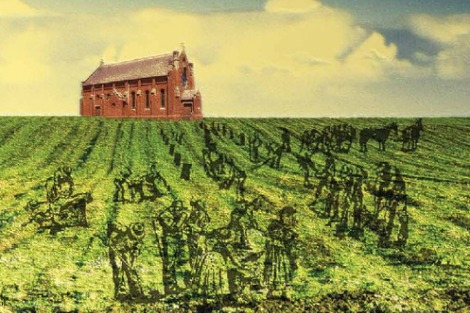
RELIGION
- Andrew Hamilton
- 13 March 2014
9 Comments
The conflict began with falling church attendances and a decision by the Koroit parish priest to rationalise resources. Although Regina Lane describes in detail the battles to save St Brigid's, her book is far more than a protest song against the power of the Catholic Church. The larger stories embodied at St Brigid's, the immigrant groups who formed the first congregation and their relationship to the first Australians, have continuing importance.
READ MORE 
-

AUSTRALIA
- John Falzon
- 16 January 2014
1 Comment
Kevin Rudd says we need a 'new politics' or a 'new way'. Tony Abbott says we'll only get a new way by electing a new government. What is missing in both statements is the recognition that what we actually need is a new kind of economic democracy: a reconfiguration of our economic prioritising away from individualism towards the common good, and towards the participation of all rather than the exclusion of many.
READ MORE 